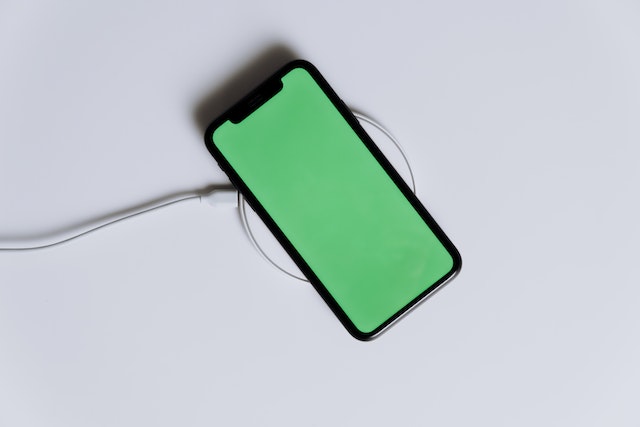The European Commission is on a legal journey to fight companies' greenwashing and put an end to misleading or ambiguous 'green' claims and statements.
Greenwashing has being around for too long, with many companies and brands taking advantage of the increasing social demand for sustainability and the lack of legal mechanisms to control ambiguous ‘green’ claims.
This combination of factors is not only harmful to the consumer who cannot make actually informed sustainable decisions, but also to sustainability as a whole as it diminishes and trivializes the importance of fighting climate change.
It is in this context that the European Union, and the European Commission specifically, have now set out to fully develop and adopt the greenwashing action plan that was created a few years ago to help put and end to false sustainable claims.

The dangerous evolution of greenwashing
The term greenwashing dates back to the 1980s, a time when sustainability awareness and demand grew among society, but, unfortunately, so did dubious and misleading ‘green’ or eco-friendly corporate allegations in an effort to manage the public perception of their brands.
But what greenwashing once started as, and what many people understand as a steady definition, has since evolved and found other ways to manifest itself. From ‘green-hushing‘ to ‘green-crowding’, the idea that companies mislead or misinform consumers in an effort to appear sustainable and gain market share is still a reality today.
But, no matter what form, shape of size greenwashing comes in, and even when done as a conscious choice or as an unintentional practice, the consequences are very much the same. This is why we believe it is important to understand all the many different ways in which greenwashing can present itself in companies.
Guide to avoid greenwashing
The European Commission's fight against greenwashing
The European Commission has been on a legal journey to fight companies’ greenwashing ever since it presented the European Green Deal in 2019. In the latter there are many proposals and different directives presented in an effort to ensure the sustainable future of the European Union.
Most recently, the European Commission has finally developed and adopted the Directive on Green Claims, an eighty page document that will help ensure companies cannot use ambiguous or misleading generalizations regarding sustainability, nor statements that are not based on actual evidence.

This is, the newly adopted directive will put and end to claims such as ‘responsible’, ‘eco-friendly’, ‘green’, ‘biodegradable’ etc; as well as many other statements that have no true substance for sustainability or the fight against climate change.
The importance of such a document is based upon a collection of data on sustainability claims that is quite concerning. According to the lates research by the European Commission, at least 53% of sustainable allegations by companies are ambiguous, 40% are not based on evidence, and one in every two sustainable tags offer weak or non-existence verification.
What constitutes a green or sustainable claim?
The Directive helps understand what constitutes a sustainable or green claim, this is, which are those company statements or allegations that should be following the new rules adopted this March. There are three criteria to know which are these targeted claims:
- Statement that are made on a voluntary basis by businesses towards consumers.
- Statements that cover the environmental impacts, aspects or performance of a product or the trader itself.
- Statements that are not currently covered by other EU rules.
How does the directive ensure reliable sustainable claims?
The Directive also sets out clear criteria that will ensure companies follow the necessary steps to offer reliable, evidence based sustainability claims that will actually and truly help consumers make the best informed decisions:
- It presents clear criteria on how companies should prove their environmental claims and labels.
- It establishes the requirements for these claims and labels to be checked by an independent and accredited verifier.
- It establishes new rules on governance of environmental labelling schemes to ensure they are solid, transparent and reliable.

Fighting greenwashing for the sake of circularity
There is of course a motivation to develop and adopt such Directive that comes from the need for transparency for consumers, as well as to fight companies’ shady behavior in terms of sustainability. However, there is one key objective or main goal that stands out, and that is the need to transform the European market into a circular economy model.
This new measures will not only help put an end to greenwashing, but it will also inform consumers and empower them to make more sustainable decisions and purchases. Furthermore, it aims to benefit companies by making their products transparent, reliable and comparable.
Companies can help employees make better decisions
Being aware of the process, and effort behind the life cycle of our purchases can actually help us be more responsible as consumers, appreciate things more and make better choices in our overall daily decisions. In fact, individuals hold great power in their own actions as consumers.
In DoGood we advocate for the importance of making small but meaningful changes in our everyday life in order to find purpose and a more healthy relationship with what is around us.
We also believe that working collectively can help us find that which alone may seem unattainable or useless. That is why we think the workplace is the perfect environment to find that collective eagerness to make a difference, both for the sustainability and purpose of the company and a more sustainable way of being for all employees.








